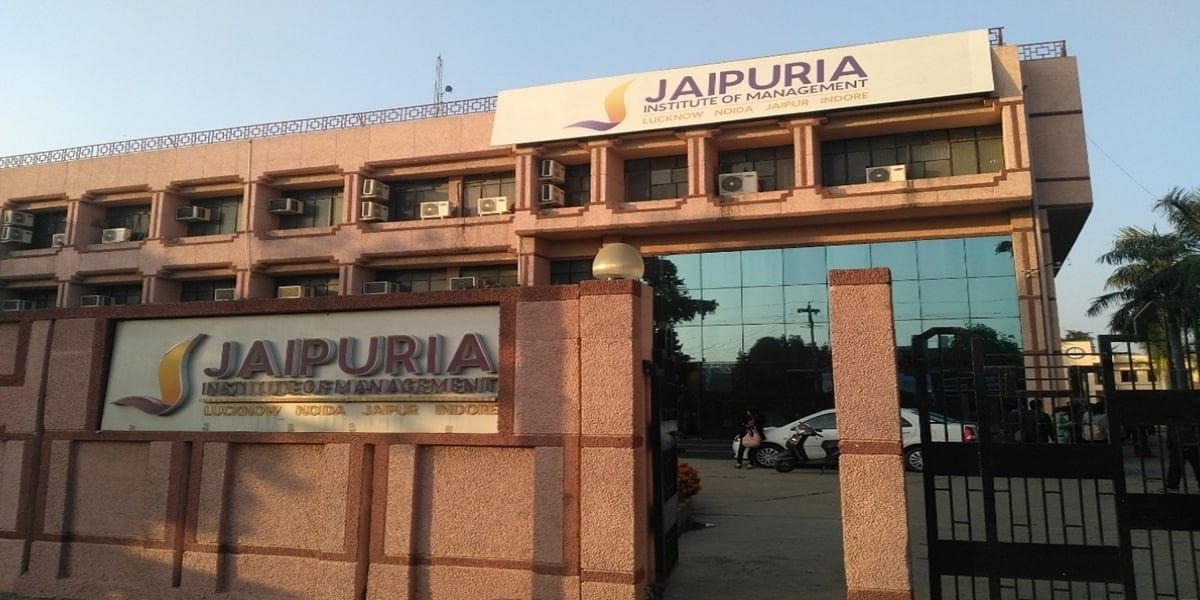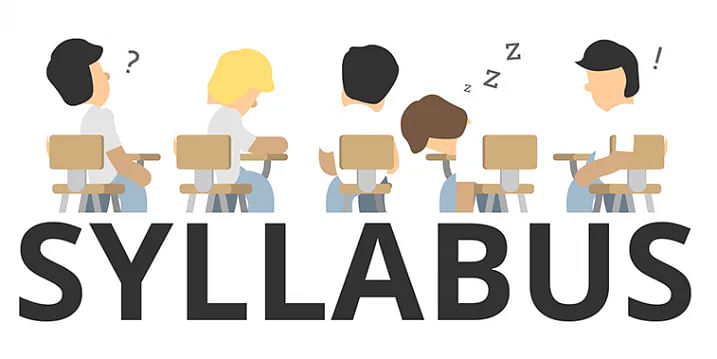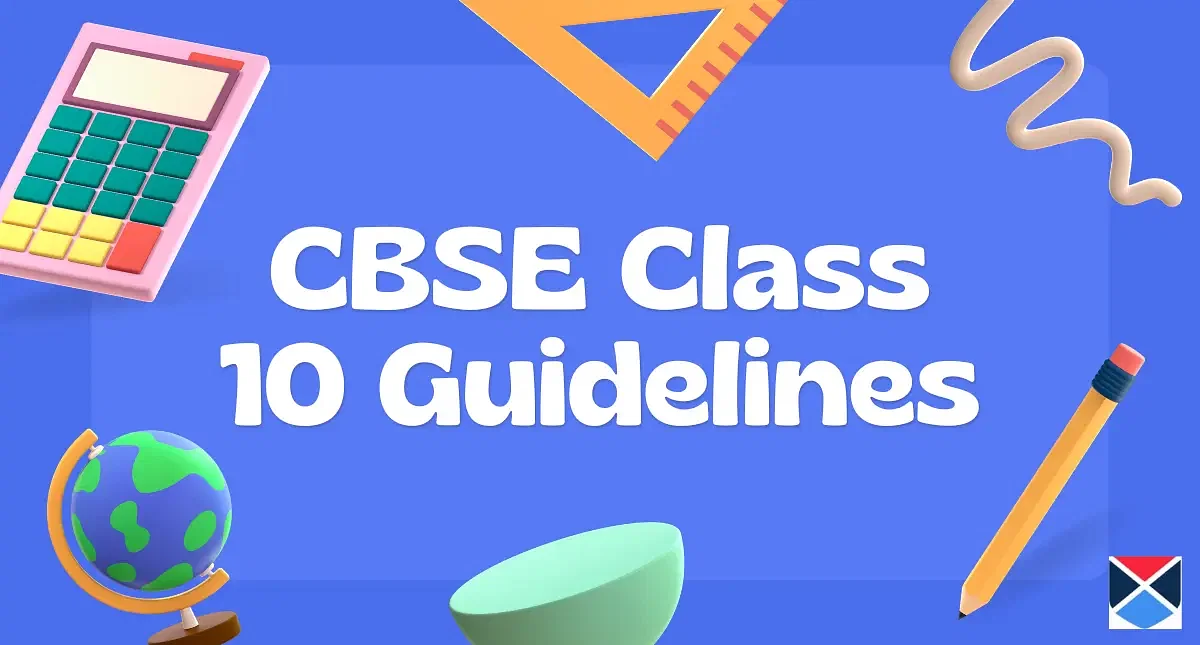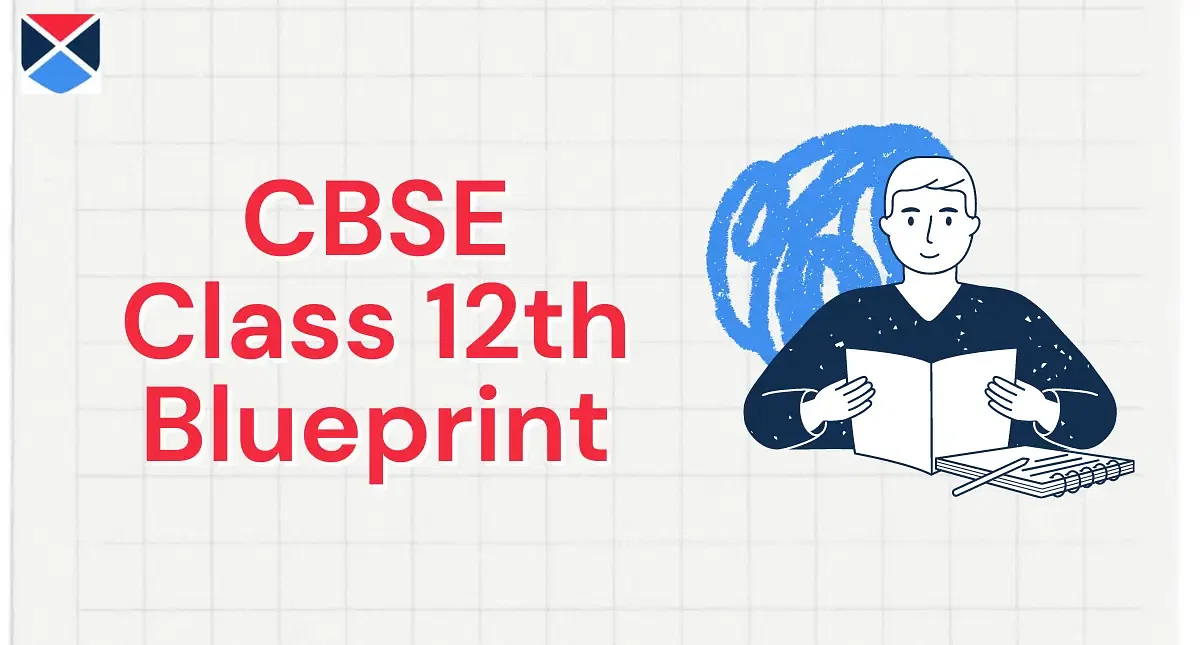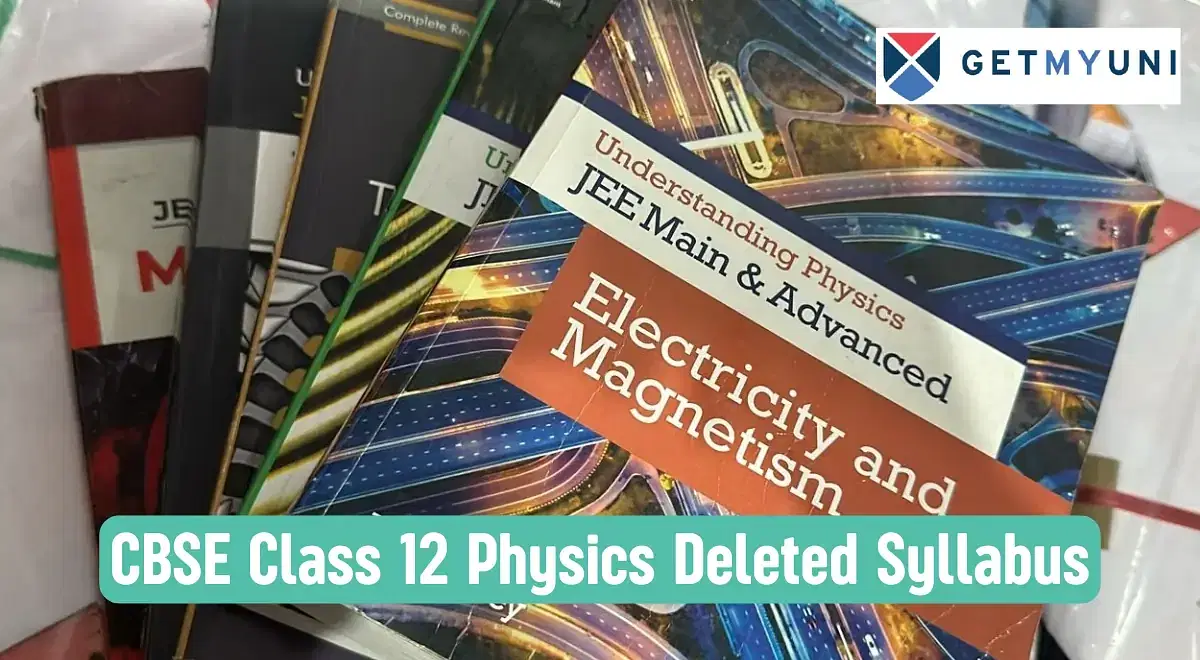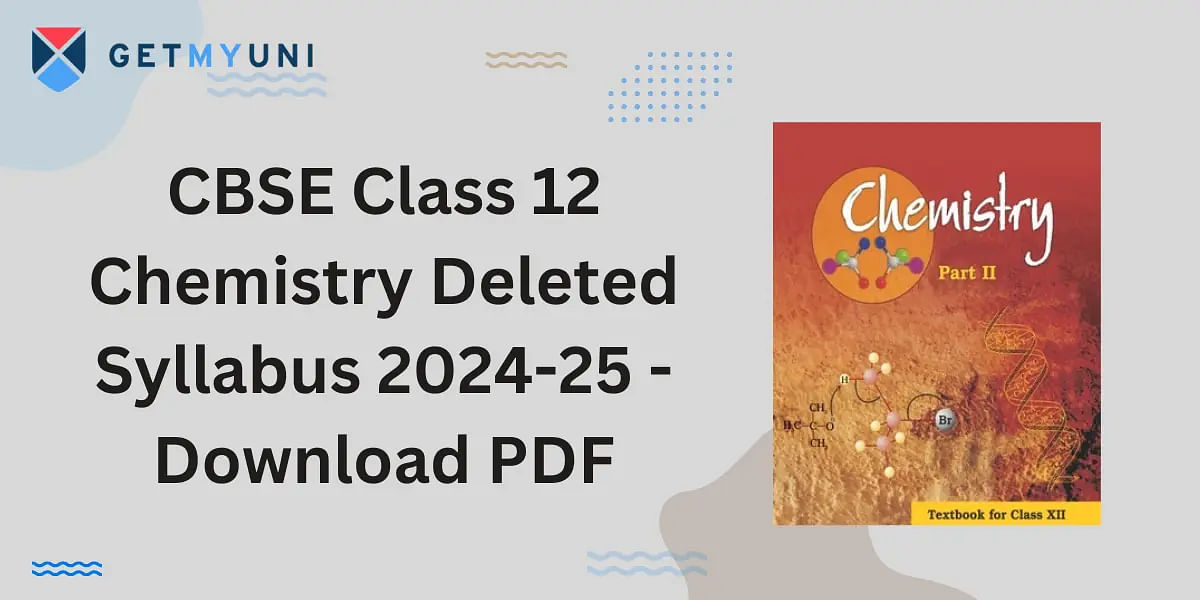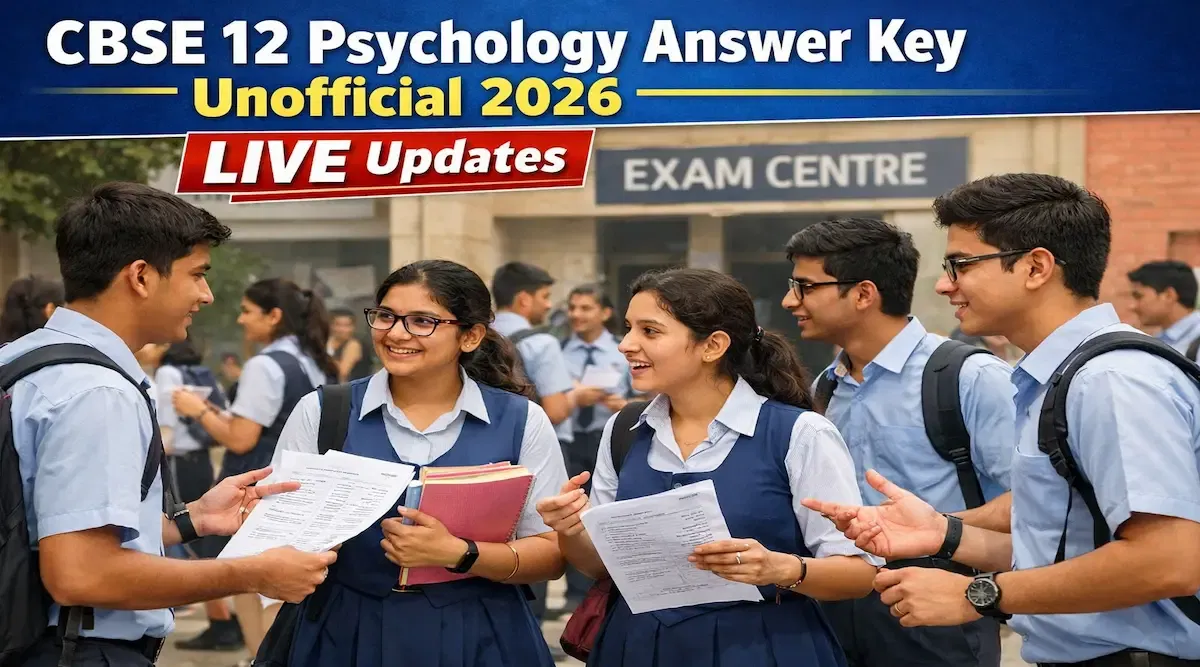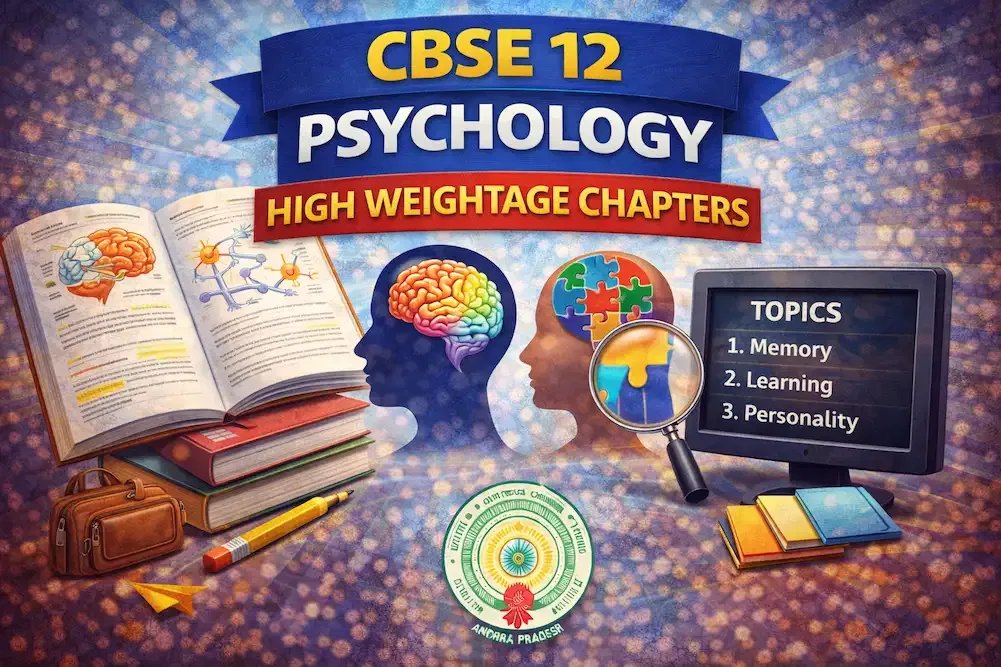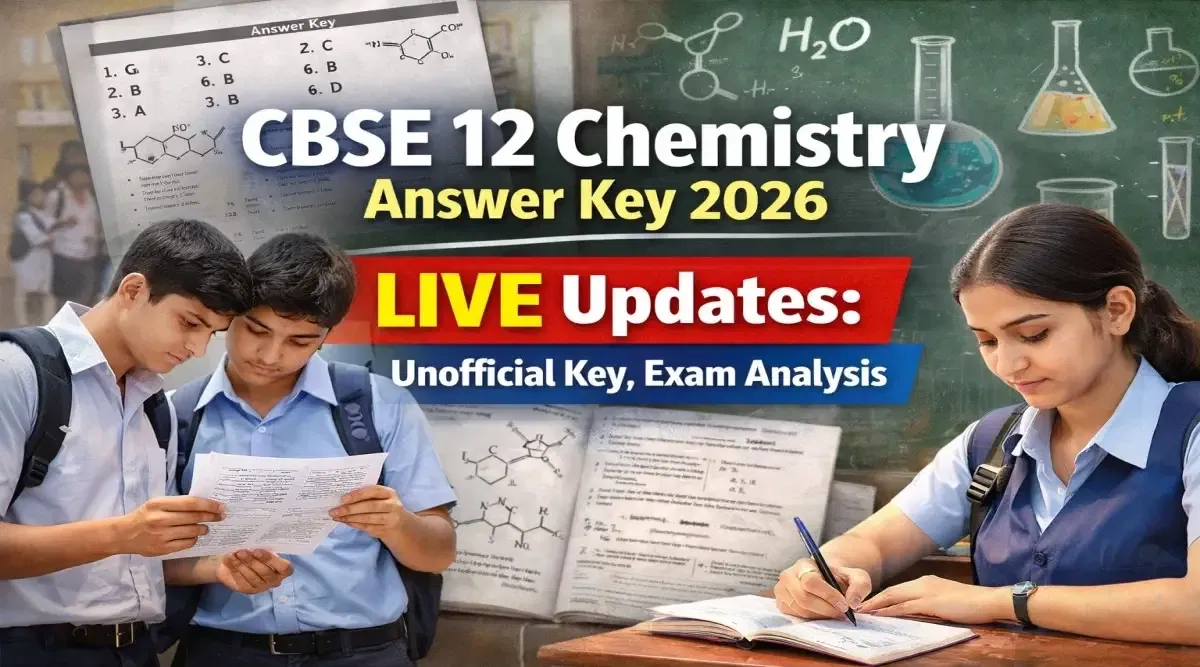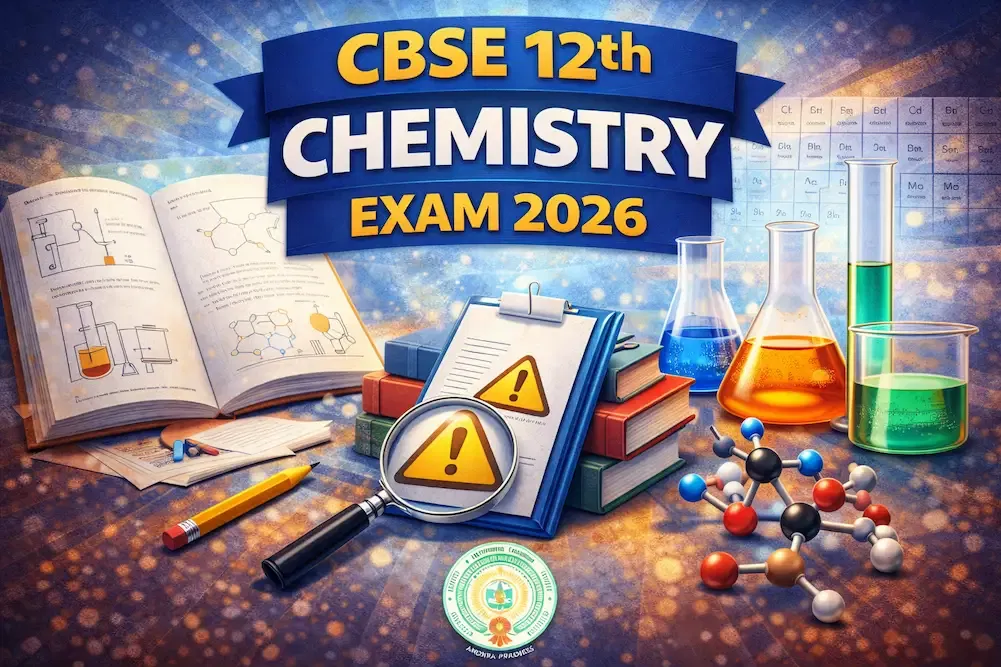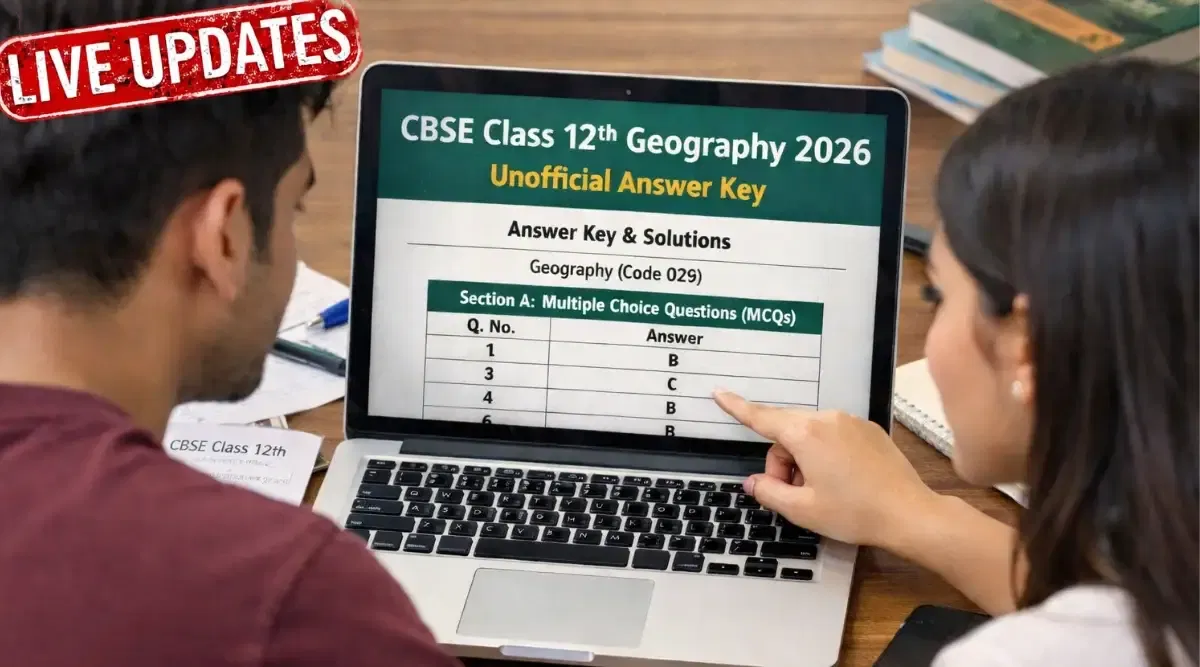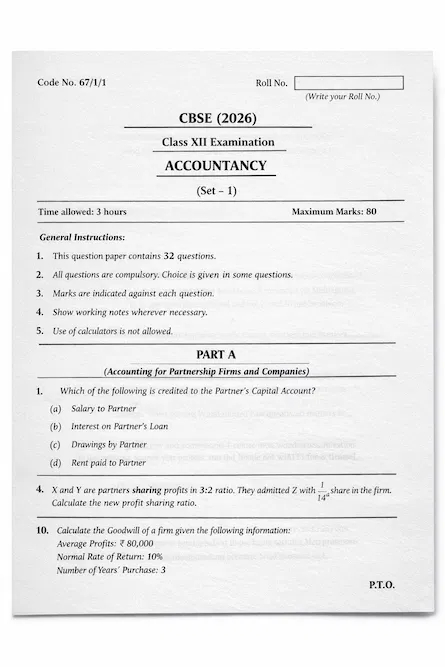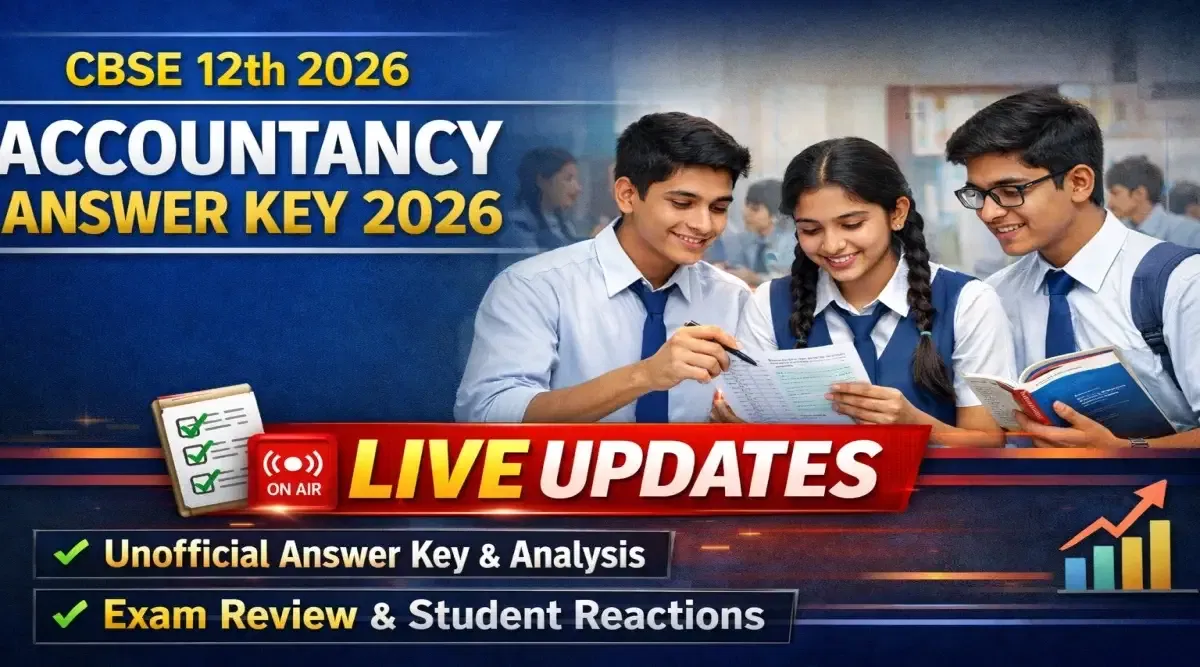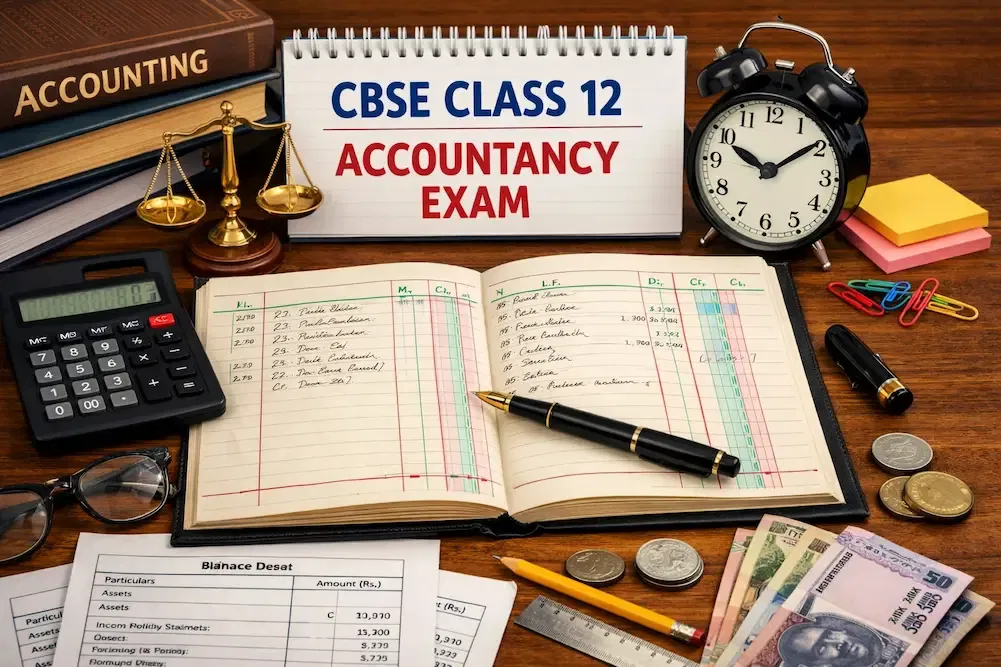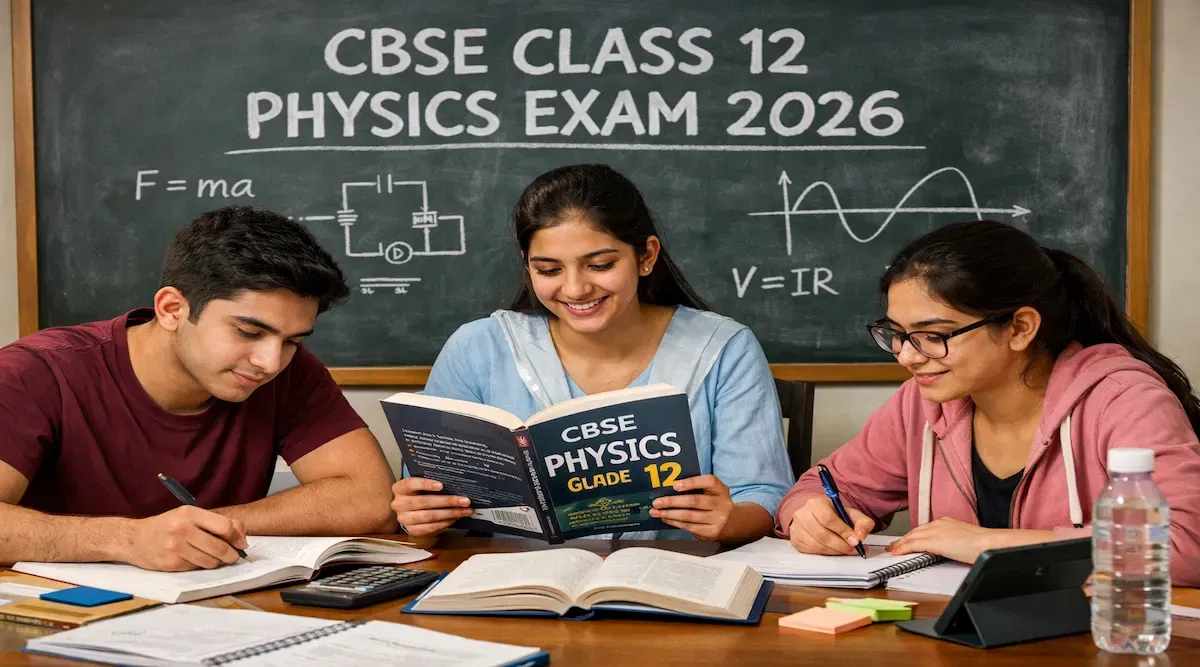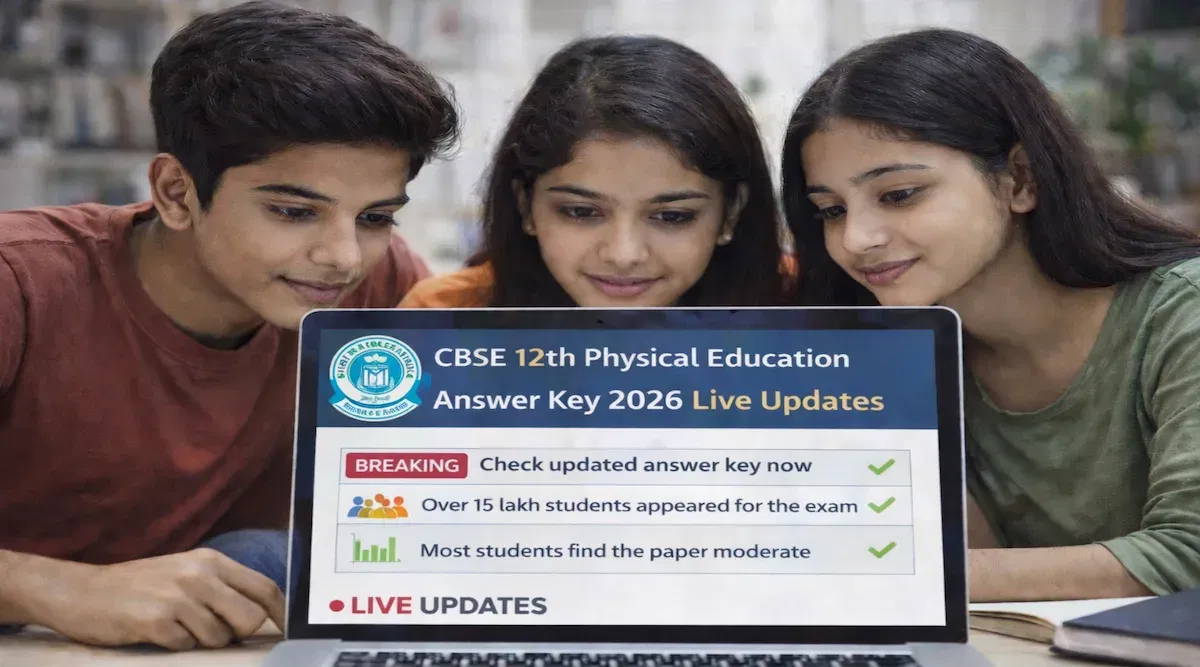CBSE Class 12 History Latest Syllabus 2025-26: Download Latest and Revised CBSE Class 12th History Syllabus PDF
Table of Contents
CBSE Class 12th History syllabus 2025-26 session has been released by the Central Board of Secondary Education (CBSE). The syllabus encompasses unit-wise topics, internal evaluation, content on map or cartographic work, question paper patterns, and project work.
The students can find the detailed syllabus on the official CBSE website. Further, students must check the syllabus topics in detail and prepare accordingly for the examination.
CBSE Class 12th History Syllabus: PDF Download
The syllabus PDF for the CBSE class 12th history paper has been released by the conducting authority. Candidates can click on the link below to download the CBSE Class 12th History Syllabus PDF:
| Particulars | Link |
| CBSE Class 12th History Syllabus PDF | Download Here |
Must Check: CBSE Class 12th Syllabus
CBSE Class 12th History Syllabus
The CBSE Class 12 History syllabus for the 2024-2025 academic session is divided into three parts, covering significant periods and themes in Indian history.
- Themes in Indian History Part—I include:
- The Harappa Civilization and early Indian states.
- Examining ancient urban societies.
- Kingship.
- Social structures.
- Cultural developments from around 600 BCE to 600 CE.
- Themes in Indian History Part—II explores medieval Indian history through the lens of travelers, the Bhakti and Sufi traditions, the Vijayanagar Empire, and agricultural societies under the Mughal Empire, spanning from the 10th to 17th centuries.
- Themes in Indian History Part—III focus on the colonial period, including the impact of colonialism on the countryside, the 1857 revolt, Mahatma Gandhi’s role in the national movement, and the framing of the Indian Constitution. Map work related to these themes is also included.
Here are the main topics included in the syllabus:
| Name of Chapter/Theme | Topics Included |
| Bricks, Beads and Bones | The Harappa Civilization |
| Kings, Farmers, and Towns | Early States and Economies (c. 600 BCE – 600 CE) |
| Kingship, Caste, and Class | Early Societies (c. 600 BCE – 600 CE) |
| Thinkers, Beliefs, and Buildings | Cultural Developments (c. 600 BCE – 600 CE) |
| Through the Eyes of Travellers | Perceptions of Society (c. 10th to 17th centuries) |
| Bhakti-Sufi Traditions | Changes in Religious Beliefs and Devotional Texts (c. 8th to 18th centuries) |
| An Imperial Capital – Vijayanagar | Vijayanagar Empire (c. 14th to 16th centuries) |
| Peasants, Zamindars, and the States | Agrarian Society and the Mughal Empire (c. 16th-17th centuries) |
| Colonialism and The Countryside | Exploring Official Archives |
| Rebels and Raj | 1857 Revolt and its Representations |
| Mahatma Gandhi and the National Movement | Civil Disobedience and Beyond |
| Framing of the Constitution | The Beginning of a New Era |
Also Read: CBSE Class 12th Deleted Syllabus
How to Download CBSE Class 12th History Syllabus?
Students can download the CBSE Class 12th History syllabus on the official website of CBSE.
- Click here to Visit CBSE Official Website: cbse.gov.in
- Go to the Academic Section: When you reach the homepage, look for either mouse over the “Academic” tab in the main menu or follow the link.
- Select 'Curriculum': Under the sub-menu of “Academic”, click “Curricular”.
- Choose 'Senior School Curriculum': Click on Senior School Curriculum to view the curriculum for classes 11 and 12.
- Download the Syllabus: Click on the link for Class XII as all links for revision Names are in Class 12 along with the History subject. Choose the syllabus that is available in PDF format for download.
- Save the PDF: Once the PDF file is loaded, look for the downloading button and hit it, or go over to the file and right-click it and select download.
Must Check: CBSE Class 12th Books
Important Topics for CBSE Class 12th History Syllabus
Here’s a detailed breakdown of the important topics in each section, along with their weightage. Applicants must check the topics details provided for reference.
|
No |
Part |
Marks |
Theme Name |
Important Topics |
|
1 |
Themes in Indian History Part–I |
25 |
Bricks, Beads and Bones: The Harappa Civilization |
Urban planning and architecture of Harappa, Artifacts, and economy of the Harappan civilization |
|
Kings, Farmers, and Towns: Early States and Economies |
Rise of early states and urbanization, Economic patterns, and agrarian society |
|||
|
Kingship, Caste, and Class: Early Societies |
Varna system and social hierarchy, Role of kingship and administration in early states |
|||
|
Thinkers, Beliefs and Buildings: Cultural Developments |
Major philosophical schools and religious beliefs, Architectural and cultural developments |
|||
|
2 |
Themes in Indian History Part–II |
25 |
Through the Eyes of Travellers: Perceptions of Society |
Accounts of foreign travelers and their observations on Indian society |
|
Bhakti-Sufi Traditions: Changes in Religious Beliefs |
Development and impact of Bhakti and Sufi movements, Key figures, and their contributions |
|||
|
An Imperial Capital – Vijayanagar |
Political, economic, and cultural aspects of the Vijayanagar Empire |
|||
|
Peasants, Zamindars and the States: Agrarian Society and the Mughal Empire |
Agrarian policies and peasant life under Mughal rule, Role of Zamindars and state administration |
|||
|
3 |
Themes in Indian History Part–III |
25 |
Colonialism and The Countryside: Exploring Official Archives |
Impact of British colonial policies on rural India |
|
Rebels and Raj: 1857 Revolt and its Representations |
Causes, events, and impact of the 1857 Revolt, Representations and interpretations of the revolt |
|||
|
Mahatma Gandhi and the National Movement: Civil Disobedience and Beyond |
Gandhi’s strategies and major movements, Non-Cooperation and Quit India movements |
|||
|
Framing of the Constitution: The Beginning of a New Era |
Key debates and decisions in the framing of the Indian Constitution |
|||
|
4 |
Map Work |
05 |
Map Work |
Mapping related to the historical themes, Historical sites, empires, and geographical features |
|
TOTAL |
80 |
Must Check: CBSE Class 12th Exam Pattern
Best Books for CBSE Class 12th History Syllabus
Choosing the right reference books is crucial to preparing for the CBSE Class 12 History syllabus effectively. Here are a few highly recommended books that you are required to read in order you succeed in understanding the principles and the grand ideas in the syllabus:
1) Xam Idea History Book Class 12
Applicants must check the details about the Xam Idea History book for class 12th mentioned below.
- Publisher/Author: Xamidea Editorial Board
- Overview: This textbook is produced on history for class xii, and the content in the book is found to be relevant. It has helpful, elaborated outlines of crucial issues, practice questions, and mock examination papers subordinate to the CBSE board syllabus. It aims to make students comprehend events and concepts of history rather than rote learning and provides a format for absorbing and revising information.
2) CBSE All In One History Class 12
Students must check the CBSE All In One History book details for class 12th provided below.
- Publisher/Author: Amibh Ranjan and Madumitta Pattrea
- Overview: This book is popularly known as a stoppage for all resource materials. This book covers the entire syllabus of class 12 history in one single book. It includes chapter-wise explanations of practice papers followed by the papers of the last year's examinations. The book is developed according to the parameters of the CBSE examination and enhances students' accomplishments while providing a lot of practice, including various exercises and model test papers.
Must Check: CBSE Class 12th History Deleted Syllabus
Preparation Tips for CBSE Class 12th History Syllabus
While preparing for the CBSE class 12th history examination, applicants must follow a few tips or guidelines for effective preparation. Some of the important preparation tips that will be useful for the candidates have been mentioned in the pointers below.
- After reviewing the syllabus, consider going through it to assess how each part is weighted and what important aspects come up. Focus on the specific chapters listed, such as "The Harappa Civilization" and "Colonialism and The Countryside," to prioritize your study plan.
- Use books like Xam Idea History Book Class 12 and CBSE All In One History Class 12. Focus on their chapter-wise breakdown and practice questions to gauge your understanding and track your progress.
- Divide minutes against each theme and chapter depending upon the weightage of the marks. For example, if a chapter is worth more marks, such as “Bricks, Beads, and Bones: The Harappa Civilization” or “Mahatma Gandhi and the National Movement,” spend the required time reading that portion.
- Pay extra attention to significant topics such as the economic patterns during early states and the impact of the 1857 Revolt. Use your reference books to dive deep into these areas and understand their implications.
- Since map work constitutes 5 marks, practice mapping historical sites and geographical features related to the syllabus, and use previous years’ question papers to familiarize yourself with the map question types.
- Work on past years’ question papers and sample questions in the reference books to familiarize yourself with the exam pattern and the most commonly asked questions. This will assist you in planning your revision and concentrating on those parts of preparation that require further enhancement.
- Ask your classmates to form study groups with you or hold conversations with them regarding any doubts about any concept in this subject so that you can learn different aspects of the complex issues.
Also Read: CBSE Class 12th Preparation Tips
FAQs on CBSE 12th History
Q: How many chapters are there in History Class 12 CBSE?
Q: How to prepare for History Class 12?
Q: Is Class 12 History challenging?
Q: How can I get full marks in History Class 12?
Q: What is the weightage of Class 12 History marks?
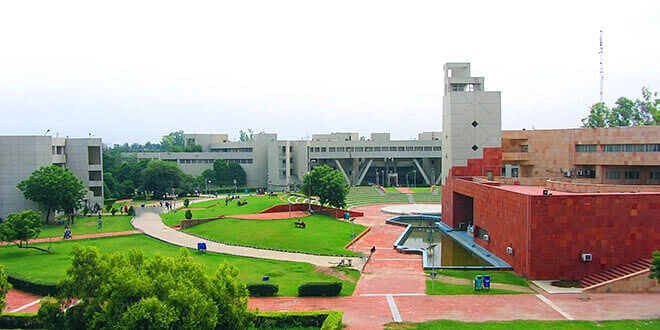



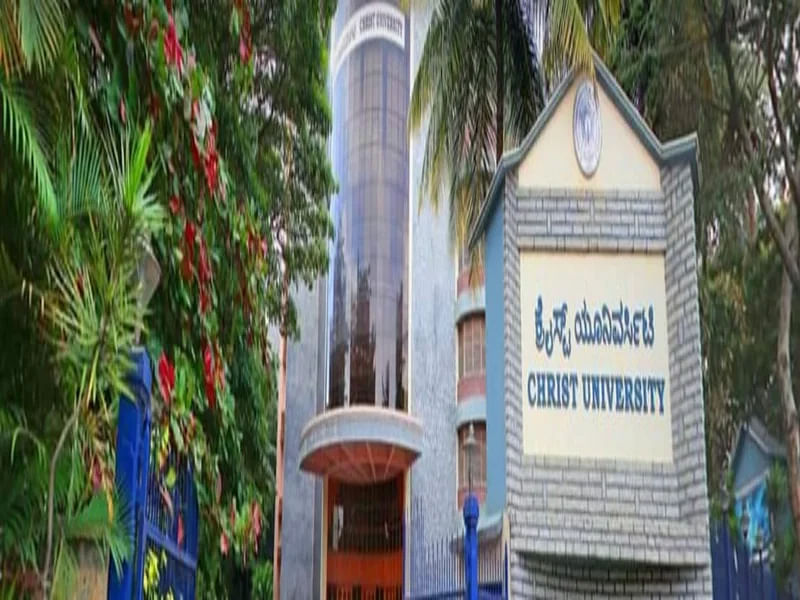

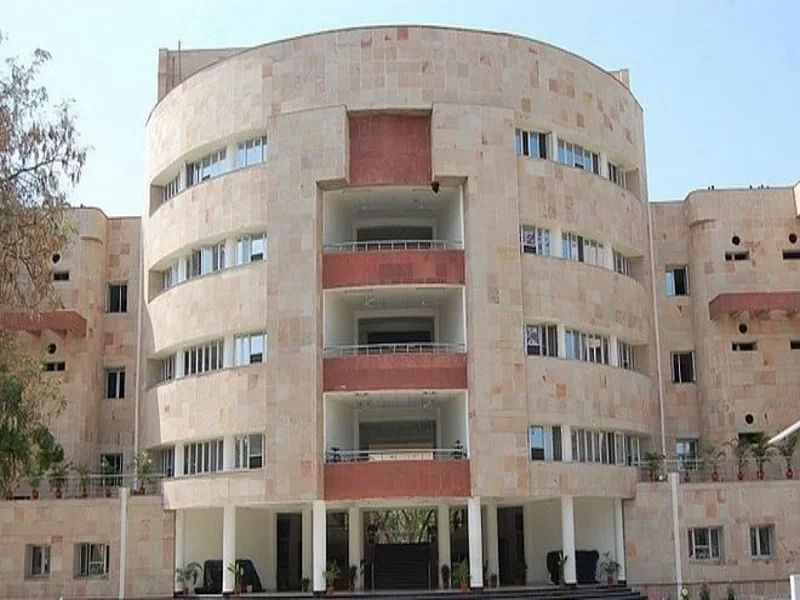
![Motilal Nehru National Institute of Technology, [MNNIT] Allahabad](https://media.getmyuni.com/azure/college-image/small/motilal-nehru-national-institute-of-technology-mnnit-allahabad.webp)
